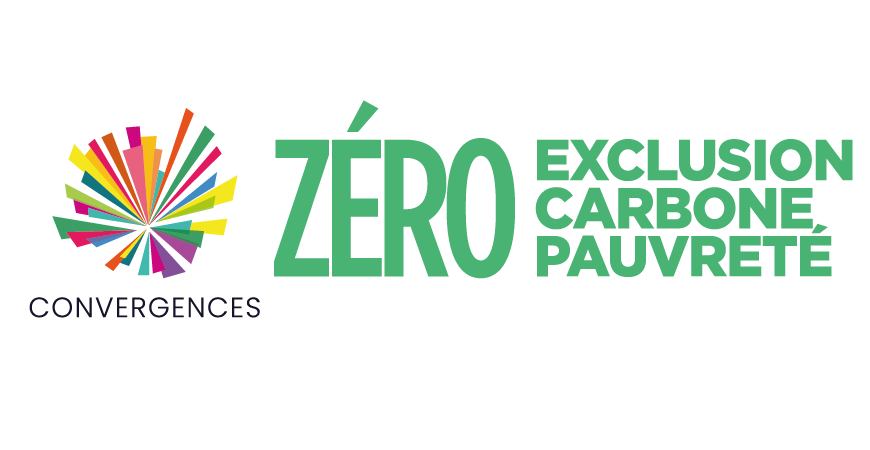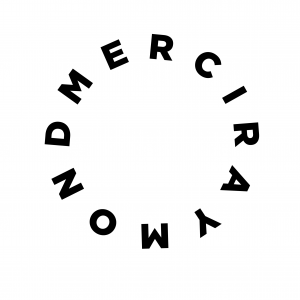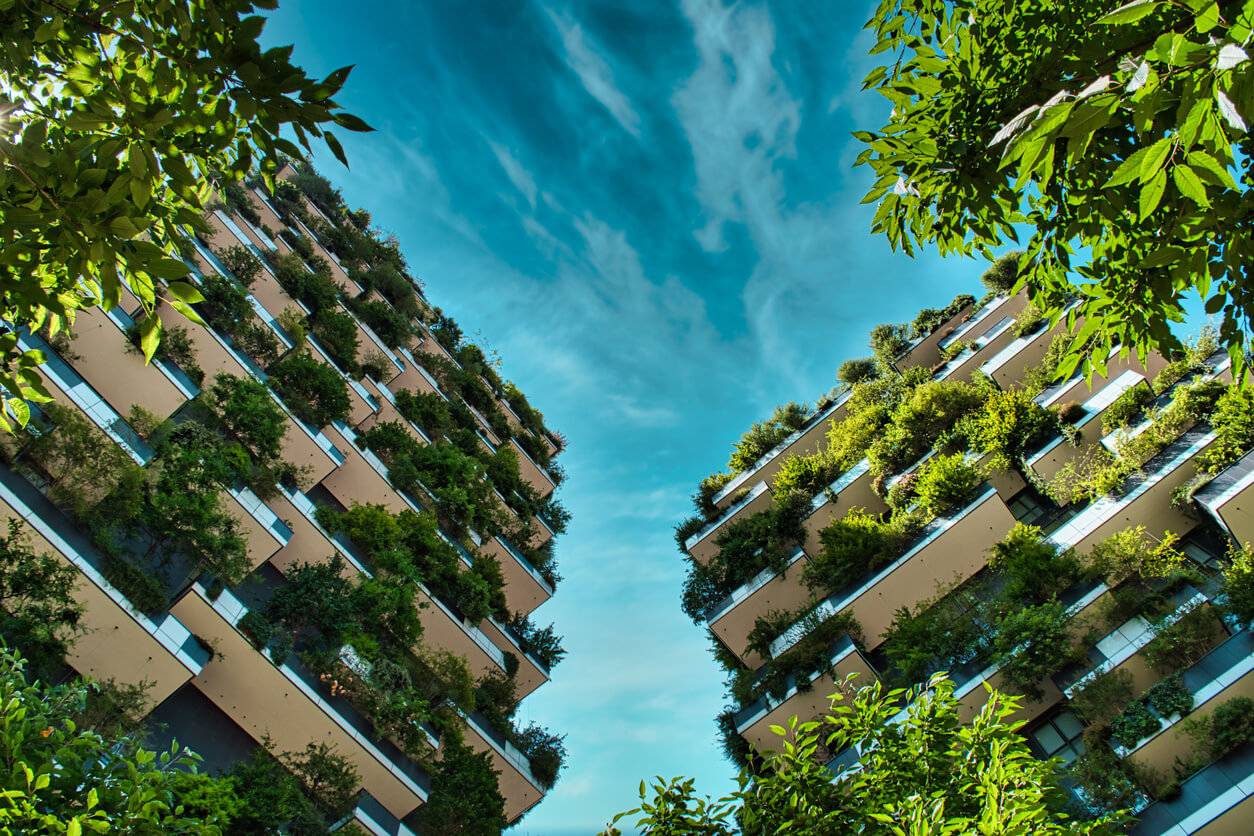
In France, urban areas occupy 22% of the territory, house 77% of the population and are constantly increasing. Urbanization represents an enormous danger for biodiversity and, as it stands, is not compatible with the consequences of climate change. In addition, several studies have shown the benefit of being exposed to natural landscapes for well-being and mental health. In addition, city dwellers are increasingly demanding that living things be taken into account in cities. From these different imperatives arises the need to reconcile urban planning and respect for nature. The concept of urban ecology is the logical answer to this need. It is a practice of urban planning that provides concrete solutions to contemporary ecological challenges. The new urban planning projects tend more and more to take into consideration the ecological issues from the start. In the case of large cities that are already built and too dense to change much, adapted solutions must be developed. Several initiatives exist that bring the city closer to the ambitions of 3Zero at their scale, including “Merci Raymond!” and “Vertuo”
Hugo Meunier’s grandfather, Raymond, was a farmer from the southwest of France. To pay tribute to him, his history, his terroir and the values of the countryside, he created “Merci Raymond!” in 2015. “Merci Raymond!” is a group composed of agronomists, engineers and landscapers whose goal is to add greenery to the city, by accompanying city dwellers in their greening projects. Wishing to reconcile the desire to live in an urban dynamic, but accustomed to country air, fresh fruits and vegetables and green landscapes, the team can not fully resign to the gray and pollution of cities.
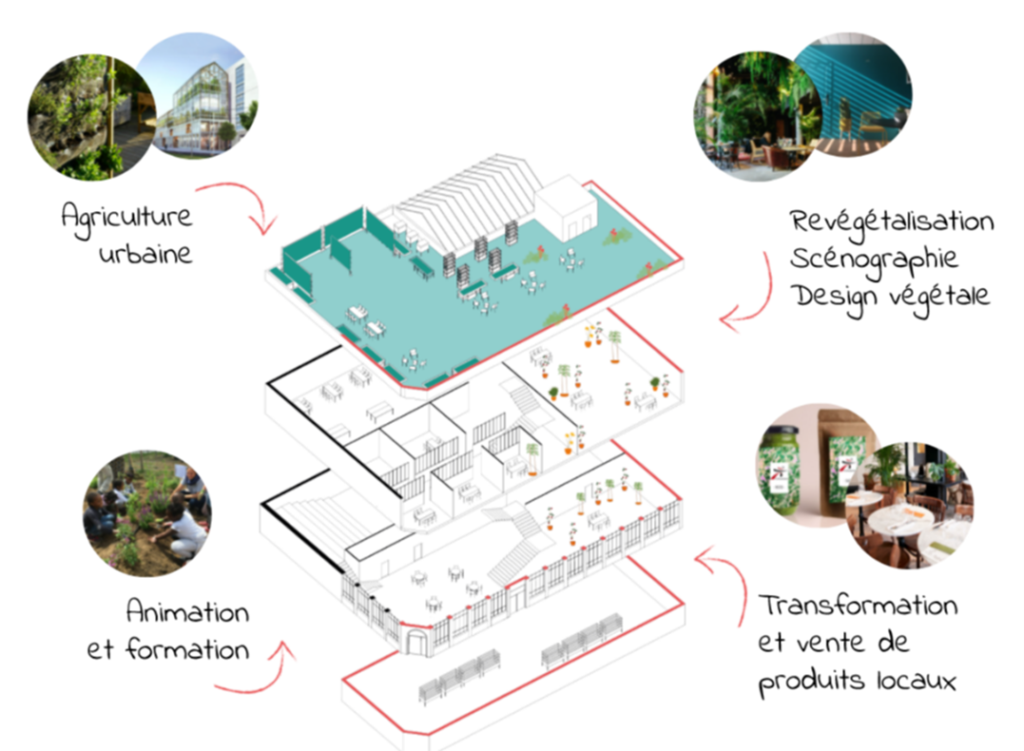
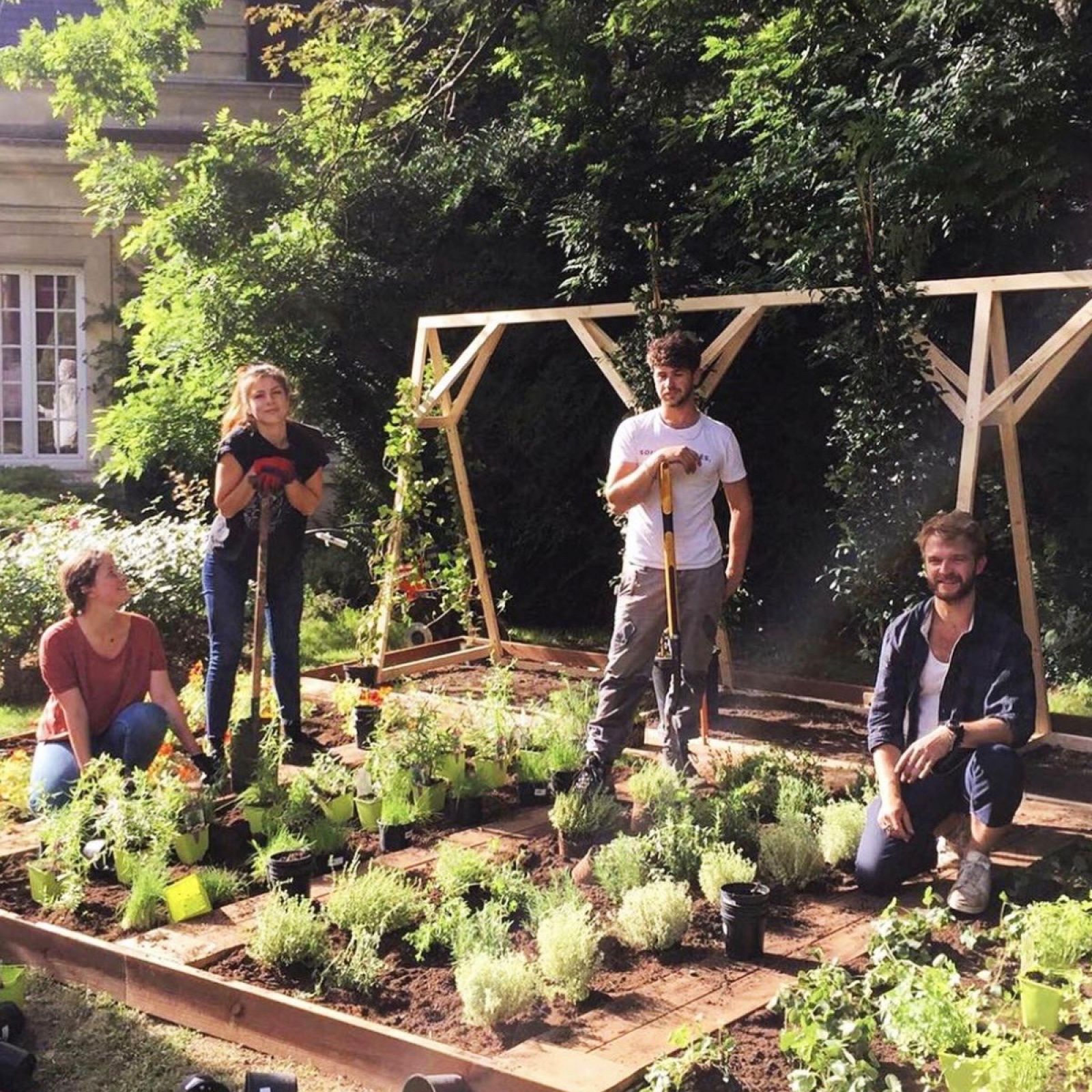
From urban agriculture to the transformation and sale of local products through the re-vegetation, animation and training in ecological practices, the action of “Merci Raymond” is declined in many projects at different scales, even the smallest, convinced that even if it is a small step towards more ecology, this action deserves to be undertaken.
On their website, you can find tutorials on how to make your own compost, how to plant and replant your own vegetables or how to sow seeds. The members share their knowledge with the general public so that everyone can be an actor in urban greening. 3Zero solutions within everyone’s reach to democratize access to urban vegetation.
But other initiatives exist. Élodie Stephan grew up in the country all her childhood. As a young adult, she came to the city but quickly felt a lack of greenery. In 2013, she created her design studio in Paris, specializing in issues related to public space and urban planning. Remembering the bocages of her native region, she came up with the idea of Vertuo, a structure that offers both urban and plant-based furniture.
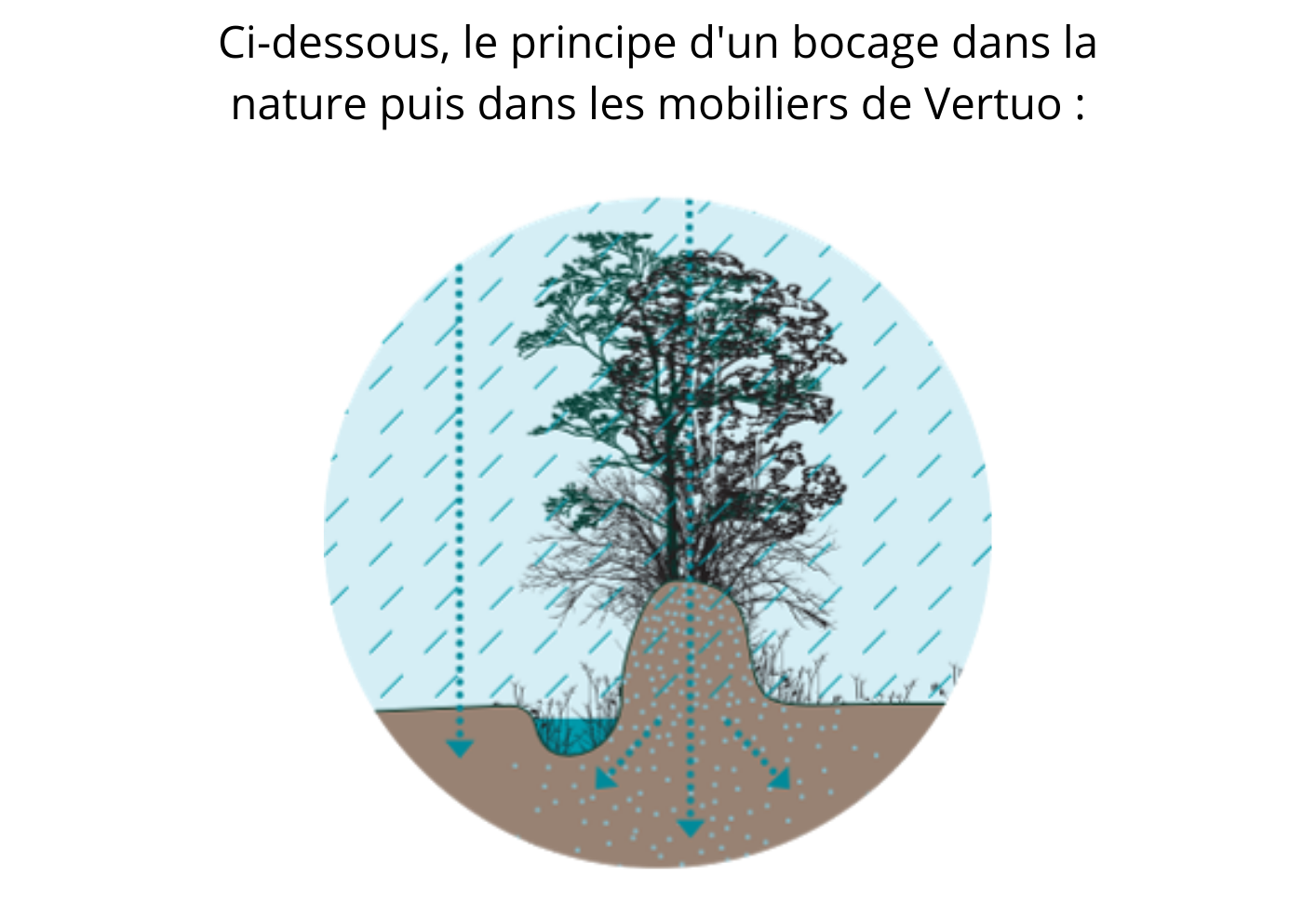
A bocage is a way of organizing the vegetation of which one finds traces as of the antique time. It consists of a levee of land allowing the trees planted on it to be better irrigated. It constitutes an important ecological network, beneficial for biodiversity.
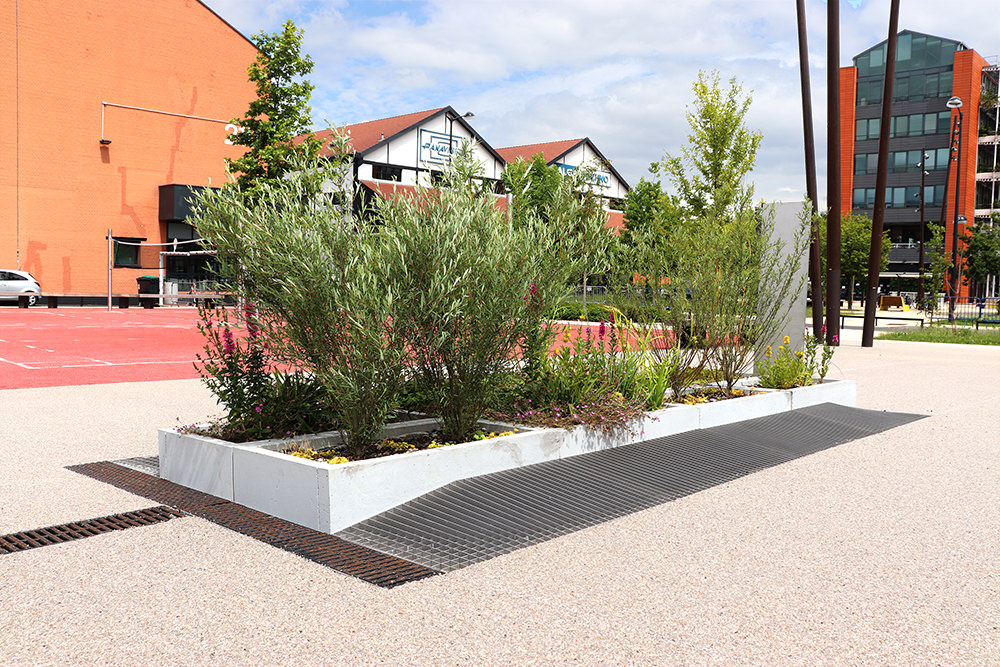
“Through the prism of design, I want to take hold of environmental issues and contribute at my own scale to the conception of a sustainable life,” explains Élodie.
The urban bocage modules create a fertile environment where there is no open land. It’s a simple and practical way to add vegetation to even the densest urban areas.
Not only do urban bocages help green cities, but because they capture and store rainwater, they also facilitate stormwater runoff, allowing for better water management and eliminating the need for watering.
Urban bocages can maintain a good hygrometry in the soil all year round for more than 40 days, even during intense heat waves. Plants do not experience water stress.
This scenario also benefits landscapers who, having no watering to do, change the plants less often and therefore save time. The hedgerows are also adapted to the local fauna and flora and are therefore beneficial to biodiversity. It is therefore a low-tech and co-beneficial solution in line with the 3Zero principles.

“Merci Raymond!” and “Vertuo” are two ways to address the issue of the lack of greening of cities. Although these are small-scale measures, the addition of these types of initiatives could make our cities more ecological and resilient. Sharing knowledge so that everyone can take ownership of this issue or making the ecological transition aesthetically pleasing by integrating it into the urban landscape: all solutions are good to explore in order to respond to the challenge of the lack of ecology in urbanization of cities.
Merci Raymond! in a few figures :
500 projects completed
150,000 plantings
25,000 people mobilized
Vertuo in a few figures :
5 years of R&D
100% local plants
80% of maintenance costs saved
